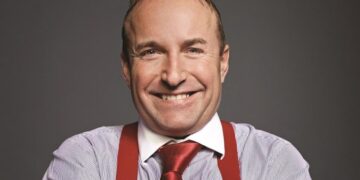In an interview with The New York Times, Cindy Holland, former vp of original content at Netflix, described the cancellation of The OA as a sign of a “broken business model.” The show, which had two seasons and a passionate fan base, was praised for its scope and ambition, but ultimately had to be cancelled due to unsustainable costs at the time. This decision was more than just the end of a TV series, it was a foreshadowing of the transformation that was to come in the industry.
Holland reflected on the disruption that had taken place in the entertainment industry over the last decade, noting that the aftermath of the pandemic had accelerated studios’ shift towards streaming, resulting in significant changes in strategies and business models. This disruption has led to a reevaluation of cost structures, restructuring, and the reassessment of strategies. This has been evident in the cancellation of projects and the removal of titles from platforms for tax write-offs.
Netflix, Warner Bros. Discovery, Disney+, and other streaming platforms have had to adapt to these changes. Netflix, in particular, was involved in the WGA and SAG-AFTRA strikes due to calls for changes to the streaming residuals’ system. After years of relying solely on a subscription-based model, Netflix has followed its competitors in introducing a new, cheaper ad tier as a nod to the traditional linear cable model. Additionally, Netflix has announced plans to reduce the number of films it releases annually, following an initially ambitious goal of 50 titles a year.
The cancellation of The OA was just the beginning of a larger industry transformation. It signaled the need for studios and streaming platforms to adapt to an ever-changing landscape. The disruption caused by the pandemic and other external factors has forced entertainment companies to rethink their business models and find new ways to meet the evolving needs and demands of audiences.
As the industry continues to evolve, the lessons learned from the cancellation of The OA serve as a reminder of the need for flexibility and adaptability in the face of change. The decision to end the show was not just about the fate of one series, but rather a reflection of the broader shifts and challenges that Hollywood and the streaming industry at large have had to face. Despite the challenges, the industry has adapted and continues to find new ways to thrive in the ever-changing entertainment landscape.































































